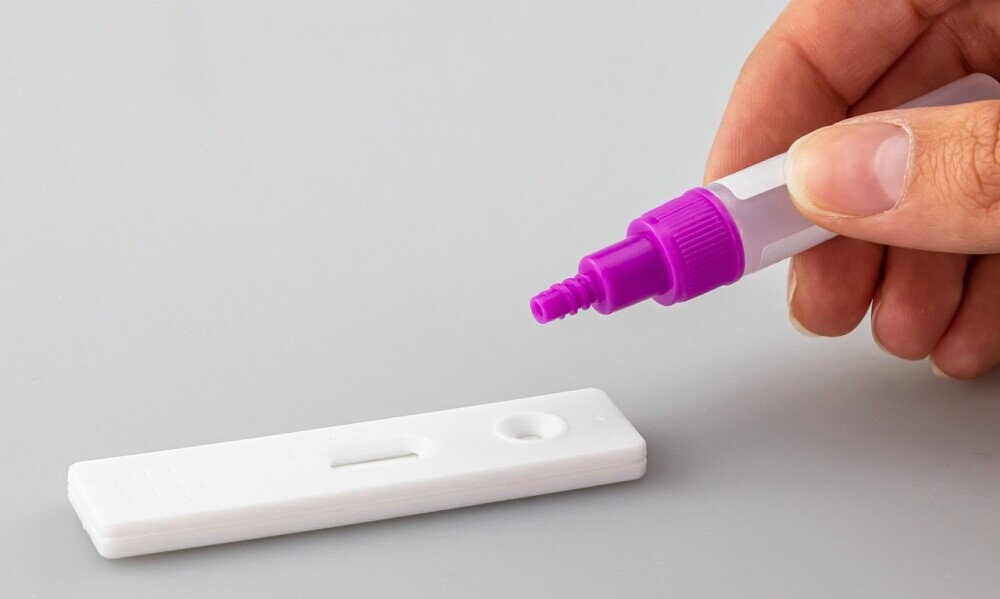Since my daughter was diagnosed with Multiple Sclerosis in 2018, we’ve faced the ongoing challenges of this disease and its treatments. Over time, I’ve learned how crucial it is to minimize the side effects of medications, doing everything within my power to ease her experience. Understanding MS and its treatments has been a journey that has empowered me in many ways. In this post, I’ll share strategies and insights on how to manage and mitigate the side effects of MS medications effectively.
Living with multiple sclerosis (MS) can be tough, especially when dealing with the side effects of drugs and treatments. These side effects can range from mild to severe, but there are ways to manage them. This guide will help you understand common side effects and provide tips to handle them effectively.
Key Takeaways
- Understanding the side effects of MS treatments can help you manage them better.
- Over-the-counter medications and proper hydration can alleviate flu-like symptoms.
- Using proper injection techniques can reduce injection site reactions.
- Dietary adjustments and medications can help with gastrointestinal issues.
- Energy conservation techniques and physical therapy can combat fatigue and weakness.
Understanding Common Side Effects of MS Treatments
Multiple sclerosis (MS) treatments can help manage the disease, but they often come with side effects. Knowing what to expect can help you manage these side effects better. Here are some common ones:
Flu-like Symptoms from Interferons

Interferons, often used to treat MS, can cause flu-like symptoms. These may include fever, chills, and muscle aches. These symptoms usually lessen over time but can be bothersome initially.
Injection Site Reactions

Medications like glatiramer acetate and some interferons require injections. This can lead to redness, swelling, or pain at the injection site. Rotating injection sites can help minimize these reactions.
One side effect I experienced after giving an injection of Betaseron was bruising at the injection site. After consulting with my doctor, I was advised to include cocoa and dark chocolate in my diet, as they help with blood coagulation. I noticed that after about a month of adding these to my menu, the bruising stopped, and I haven’t had any issues since.
Gastrointestinal Issues

Some MS treatments can cause gastrointestinal problems such as nausea, diarrhoea, and constipation. For example, dimethyl fumarate may lead to black, tarry stools and other digestive issues.
Fatigue and Weakness

Fatigue is a common side effect of many MS treatments. This can make daily activities challenging. Weakness may also occur, making it important to balance rest and activity.
Managing Flu-like Symptoms
Over-the-Counter Medications

To manage flu-like symptoms, you can use over-the-counter medications like acetaminophen or ibuprofen. These can help reduce fever and body aches. Always consult your doctor before starting any new medication.
Hydration and Rest

Staying hydrated and getting plenty of rest is crucial. Drink lots of water and avoid caffeine. Rest helps your body recover faster.
Gradual Dose Increase
Gradually increasing the dose of your medication can help your body adjust and reduce side effects. Talk to your healthcare provider about the best way to do this.
Consulting Your Healthcare Provider

If symptoms persist, it’s important to consult your healthcare provider. They can offer additional strategies or adjust your treatment plan to help you feel better.
Managing flu-like symptoms effectively can make a big difference in your overall well-being. Don’t hesitate to reach out to your healthcare provider for guidance.
Addressing Injection Site Reactions

Managing injection site reactions is crucial for those undergoing injectable disease-modifying therapies (DMTs) for multiple sclerosis (MS). These reactions can range from mild irritation to more severe complications. Here are some strategies to help you manage them effectively.
Proper Injection Techniques
Using the correct injection technique can significantly reduce the risk of injection-related reactions. Always follow the instructions provided by your healthcare provider and ensure that you are using the right type of needle and syringe. If you’re unsure, ask for a demonstration.
Rotating Injection Sites
Rotating your injection sites is essential to prevent skin irritation and other complications. Avoid injecting into the same spot repeatedly. Instead, create a rotation schedule to ensure each site has time to heal before being used again.
Using Ice Packs

Applying an ice pack to the injection site before and after the injection can help reduce pain and swelling. Keep the ice pack on the site for a few minutes to numb the area and minimize discomfort.
Topical Treatments
Topical treatments like hydrocortisone cream can be applied to the injection site to alleviate itching and inflammation. Consult your healthcare provider before using any topical treatments to ensure they are safe and effective for you.
Managing injection site reactions effectively can make your treatment journey more comfortable and less stressful.
Dealing with Gastrointestinal Issues
Dietary Adjustments

Making changes to your diet can help manage gastrointestinal issues. Eating a balanced diet rich in fibre can ease constipation. Including foods like fruits, vegetables, and whole grains can be beneficial. Avoiding spicy and fatty foods may reduce symptoms like nausea and diarrhoea.
Medications for Nausea and Diarrhea
There are various medications available to help with nausea and diarrhoea. Over-the-counter options like antiemetics can help with nausea, while antidiarrheals can manage diarrhoea. Always consult your healthcare provider before starting any new medication.
Staying Hydrated
Staying hydrated is crucial when dealing with gastrointestinal issues. Drinking plenty of water can help prevent dehydration, especially if you are experiencing diarrhoea. Hydration is key to maintaining overall health.
When to Seek Medical Advice
If your gastrointestinal symptoms persist or worsen, it is important to seek medical advice. Persistent issues may indicate a more serious underlying condition that needs professional attention. Don’t hesitate to contact your healthcare provider for guidance.
Handling Fatigue and Weakness
Fatigue is a common and debilitating symptom of multiple sclerosis (MS). Managing this fatigue and the associated weakness can significantly improve the quality of life for those affected. Here are some strategies to help handle these symptoms effectively.
Monitoring and Preventing Serious Side Effects
Regular Blood Tests

Regular blood tests are essential for monitoring the effects of MS treatments. These tests help in detecting any abnormalities early, ensuring that any potential issues are addressed promptly. Regular monitoring can prevent serious complications and help in adjusting the treatment plan as needed.
Cardiotoxicity Awareness
Some MS treatments can lead to cardiotoxicity, which is damage to the heart muscle. It’s crucial to be aware of this risk and to monitor heart health regularly. Patients should report any unusual symptoms, such as chest pain or shortness of breath, to their healthcare provider immediately.
Liver Function Monitoring

Liver function tests are necessary to ensure that the liver is not adversely affected by MS medications. These tests can detect liver inflammation or damage early, allowing for timely intervention. Patients should avoid alcohol and other substances that can strain the liver.
Communicating with Your Doctor
Open communication with your doctor is vital in managing MS treatments. Patients should report any side effects or concerns promptly. This allows for quick adjustments to the treatment plan, ensuring the best possible outcomes. Effective communication can significantly improve the management of MS and its treatments.
Psychological Support and Coping Strategies
Living with multiple sclerosis (MS) can be tough, both physically and emotionally. It’s important to find ways to cope and get the support you need. Here are some strategies to help you manage the emotional impact of MS.
Counselling and Therapy

Talking to a counsellor or therapist can be very helpful. They can provide a safe space to express your feelings and help you develop coping strategies. Cognitive-behavioral therapy (CBT) is one type of therapy that can be particularly effective for managing stress and anxiety related to MS.
Support Groups
Joining a support group can make a big difference. Being around others who understand what you’re going through can provide comfort and practical advice. Many people find that sharing their experiences helps them feel less alone.
Mindfulness and Relaxation Techniques
Practising mindfulness can help you mentally step away from stress or sadness. Techniques like meditation, deep breathing exercises, and yoga can help you relax and improve your overall well-being. These activities can also help you manage pain and fatigue.
Building a Support Network
Staying connected with friends and family is crucial. They can offer emotional support and help with daily tasks. Don’t hesitate to ask for help when you need it. Building a strong support network can make living with MS more manageable.
It’s important to remember that you don’t have to face MS alone. There are many resources and people ready to help you navigate this journey.
Conclusion
Managing the side effects of drugs and treatments for multiple sclerosis (MS) is crucial for improving the quality of life for those affected by this condition. While many side effects can be mild and temporary, others may be more serious and require close monitoring and prompt intervention. It’s important for patients to maintain open communication with their healthcare providers to address any concerns and adjust treatments as necessary. By staying informed and proactive, individuals with MS can better navigate their treatment plans and work towards achieving the best possible outcomes.
Frequently Asked Questions
What are the common side effects of MS treatments?
Common side effects include flu-like symptoms, injection site reactions, gastrointestinal issues, fatigue, and weakness.
How can I manage flu-like symptoms from MS medications?
You can manage flu-like symptoms by using over-the-counter medications, staying hydrated, getting plenty of rest, gradually increasing the dose, and consulting your healthcare provider.
What should I do if I experience injection site reactions?
To address injection site reactions, use proper injection techniques, rotate injection sites, apply ice packs, and consider using topical treatments.
How can I deal with gastrointestinal issues caused by MS treatments?
Dietary adjustments, medications for nausea and diarrhoea, staying hydrated, and seeking medical advice when necessary can help manage gastrointestinal issues.
What strategies can help with fatigue and weakness from MS treatments?
Energy conservation techniques, physical therapy, exercise, medications for fatigue, and adjusting your treatment plan can help manage fatigue and weakness.
How can I monitor and prevent serious side effects of MS treatments?
Regular blood tests, being aware of cardiotoxicity, monitoring liver function, and communicating with your doctor are essential for preventing serious side effects.
I hope this post has been helpful in navigating the side effects of MS treatments. If you have any concerns, questions, or tips to share, I would love to hear from you. Feel free to get in touch and let’s continue this important conversation together.
Elena
References:
- Everyday Health: How to Spot the Signs of an MS Flare
- Frontiers in Neurology-Comparison of injective related reactions following ofatumumab and ocrelizumab in patients with multiple sclerosis
- The Emotional Impact of Secondary Progressive MS
This article is for informational purposes only and is not a substitute for professional medical advice. Always consult your doctor before making health-related decisions.

